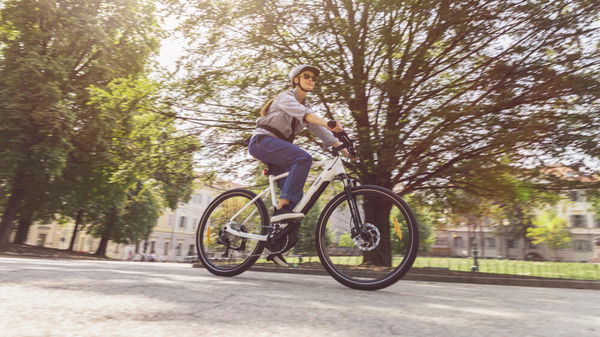Self-driving cars get film green light from UK government, BMW plan in-car games
After a consultation on the matter, the government is set to allow those in control of self-driving cars to watch videos while driving on the road.
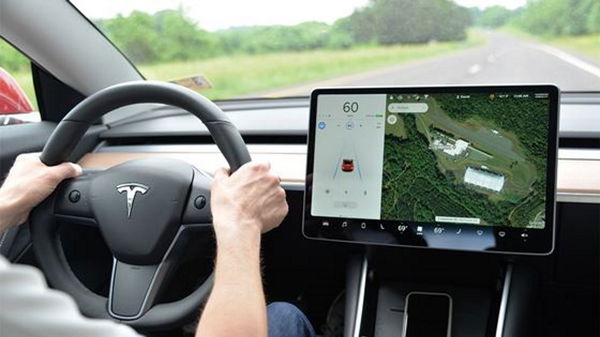
AS the UK government moves towards a full roll-out of self-driving cars on the roads, one rule is being introduced to allow ‘drivers’ to watch videos while the vehicle is in motion!
The changes came when the government updated the highway code earlier this year. At the time it was done to consider the new autonomous technology and incorporate it into the rules of the road.
One of those rules around self-driving cars though could cause vulnerable road users to be put at risk. It centres around watching content that is not related to the vehicle (films, TV, music videos, social media, and emails) on the vehicle's built-in display screens. It’s becoming increasingly more common for modern vehicles to feature large, full-colour screens built into the cockpit. In some instances, these are used to change the settings of the car, relay information to the driver, or provide navigation assistance. Many though can be set to display videos via internal or external storage devices, with some being able to surf the internet either through 5G or Wi-Fi.
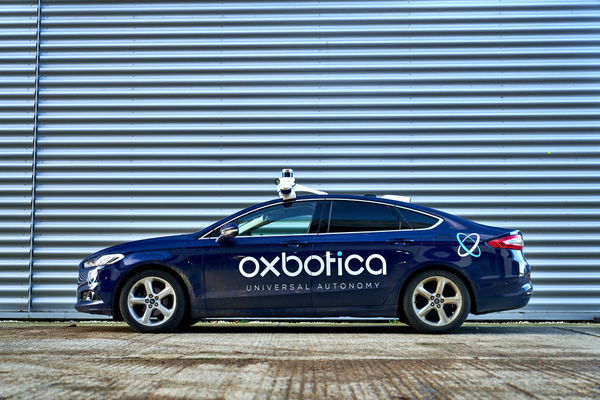
Self-driving cars already not up to scratch
The move will likely strike fear into the hearts of vulnerable road users, such as motorcyclists. It’s already been widely reported that many self-driving cars do not ‘see’ motorcycles in some circumstances. At a time like this, autonomous car manufacturers claim that the liability lies with the driver of the vehicle to spot the danger and take back control of the vehicle. It doesn’t take a genius to figure out how badly this could end if the ‘driver’ of the vehicle is binge-watching a boxset of The Walking Dead while travelling down the middle lane of the M6… If it's too distracting for a driver to use a mobile phone at the wheel, how different is it to watch a film?
BMW put games consoles in their cars
And it's not just films that can be of concern here. BMW has announced a partnership with AirConsole on 11 October 2022 which it says in a press release will "make every waiting situation in the vehicle an entertaining experience."
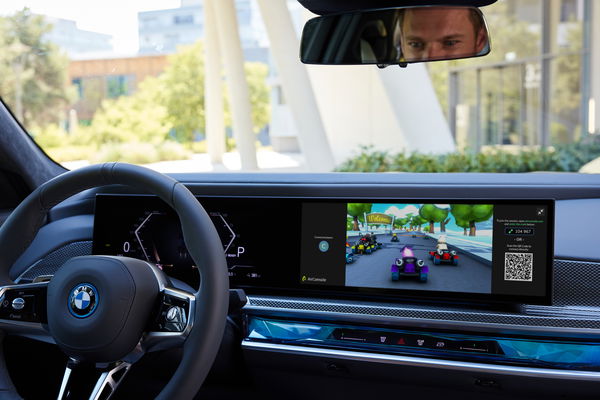
The implementation of AirConsole into BMW cars will allow their respective owners to play both single- and multiplayer videogames from the comfort of the driver's seat. Using AirConsole, a player can use their smartphone as a controller.
Stephan Durach, Senior Vice President BMW Group Connected Company Development, said: “With AirConsole we will leverage innovative technologies combined with a broad variety of fun and multiplayer games. This will make every waiting situation inside the vehicle, such as charging, an enjoyable moment."
Anthony Cliquot, CEO of N-Dream, the company behind the AirConsole brand, added: “We are extremely proud to spearhead gaming inside vehicles with BMW and are excited to create new games for in-car entertainment. Our ingenious architecture coupled with the ease of access of our platform will change the way people get entertained in their vehicles.”
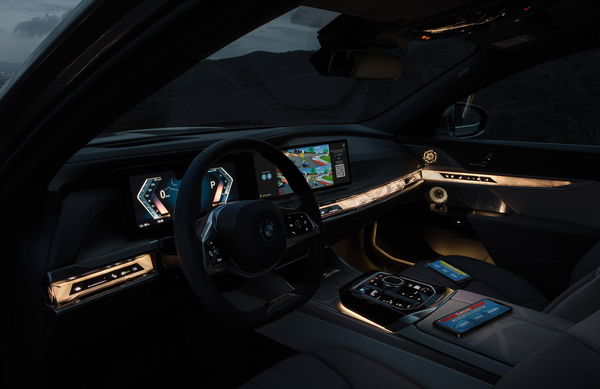
It is currently unclear whether BMW's AirConsole capability will be available when the car is actually moving (the mention of "every waiting situation inside the vehicle," does not explicitly exclude videogames from being available while on the move) although even if it is only available when stopped it is not hard to see the potential road safety implications of that, especially in a partial-autonomy situation.

BMW is not the first car manufacturer to explore implementing their car with videogaming capabilities, though, since Tesla brought videogames to their cars a few years ago. It is notable that Tesla does not allow videogames to be played while the car is moving anymore - although even without videogames their drivers can still struggle to notice when a motorcycle is in front of them.
As discussed below, it is already confirmed that the person sat in the driving seat of a car with partially-autonomous capabilities will pay less attention while driving. Adding not only films but also videogames to the list of things to distract 'not-drivers' from the monotony of 'not driving' is surely only to facilitate a further decrease of the attention paid by someone in a vehicle which is not fully 'self-driving'.
Considering the proven incapabilities of autonomous driving technologies in detecting motorcycles, it is possible to say that cars featuring videogames increase the risk to bikers.
Self-driving owners pay less attention while driving
Since the announcement that UK drivers would be able to watch films while travelling in their assisted-driving cars, a study in the US has confirmed that people who own vehicles with autonomous capabilities pay less attention while driving.
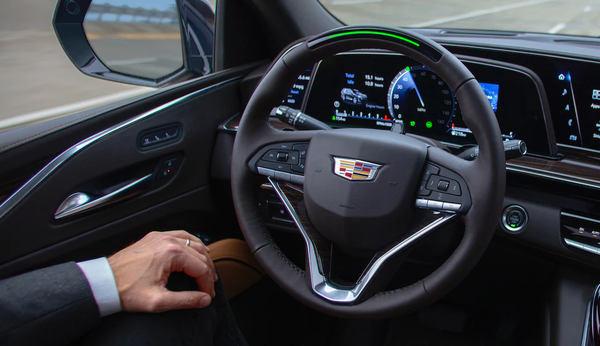
The study was conducted by the Insurance Institute for Highway Safety (IIHS), and evaluated drivers using Cadillac's Super Cruise, Tesla's Autopilot, and the ProPILOT Assist of Nissan and Infiniti.
The IIHS found that 53 percent of Super Cruise users, 42 percent of Autopilot users and 12 percent of ProPILOT Assist users were "comfortable" using their partially autonomous vehicles as if they were fully autonomous.
Additionally, users of the aforementioned autonomous services said they were more likely to "perform non-driving-related activities like eating or texting while using their partial automation systems than while driving unassisted," the IIHS said.
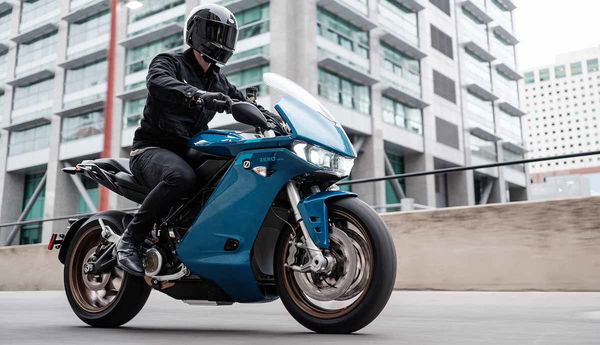
The study confirms that, while autonomous vehicles are on the way to the UK, the understanding of the extent to which these vehicles are autonomous is perhaps not at the level where such vehicles can be trusted. It is also true that the current generation of (partially) self-driving technology is not safe for motorcyclists, as discussed by the Federation of European Motorcyclists' Associations (FEMA) in a recent letter sent to Euro NCAP.
Contemporary autonomous technology combined with a lack of understanding of that technology, and lapsed driver concentration as a result of that lack of understanding, will continue to be dangerous for motorcyclists, at least until the new safety tests focusing on motorcycles are introduced in January 2023.
